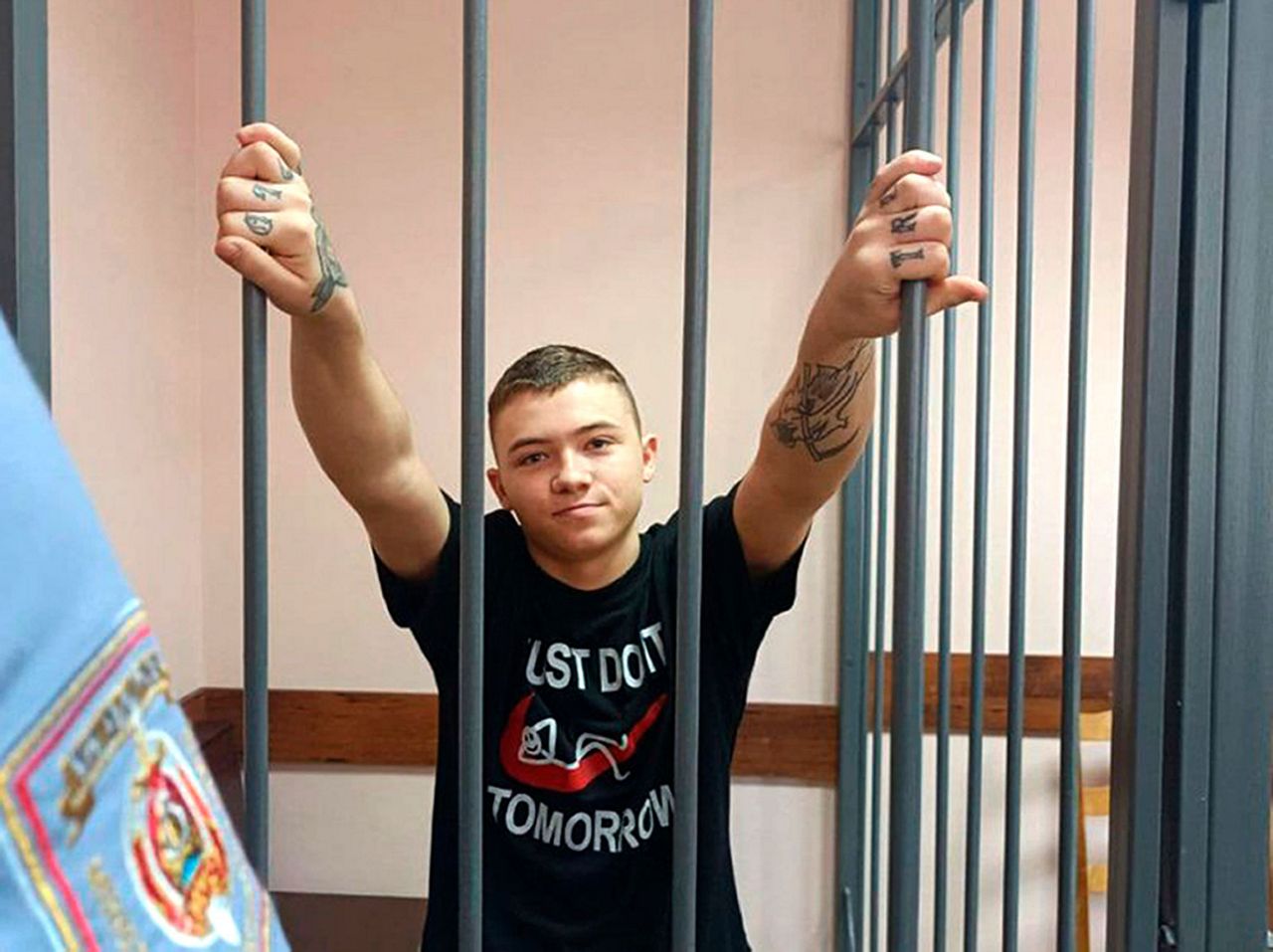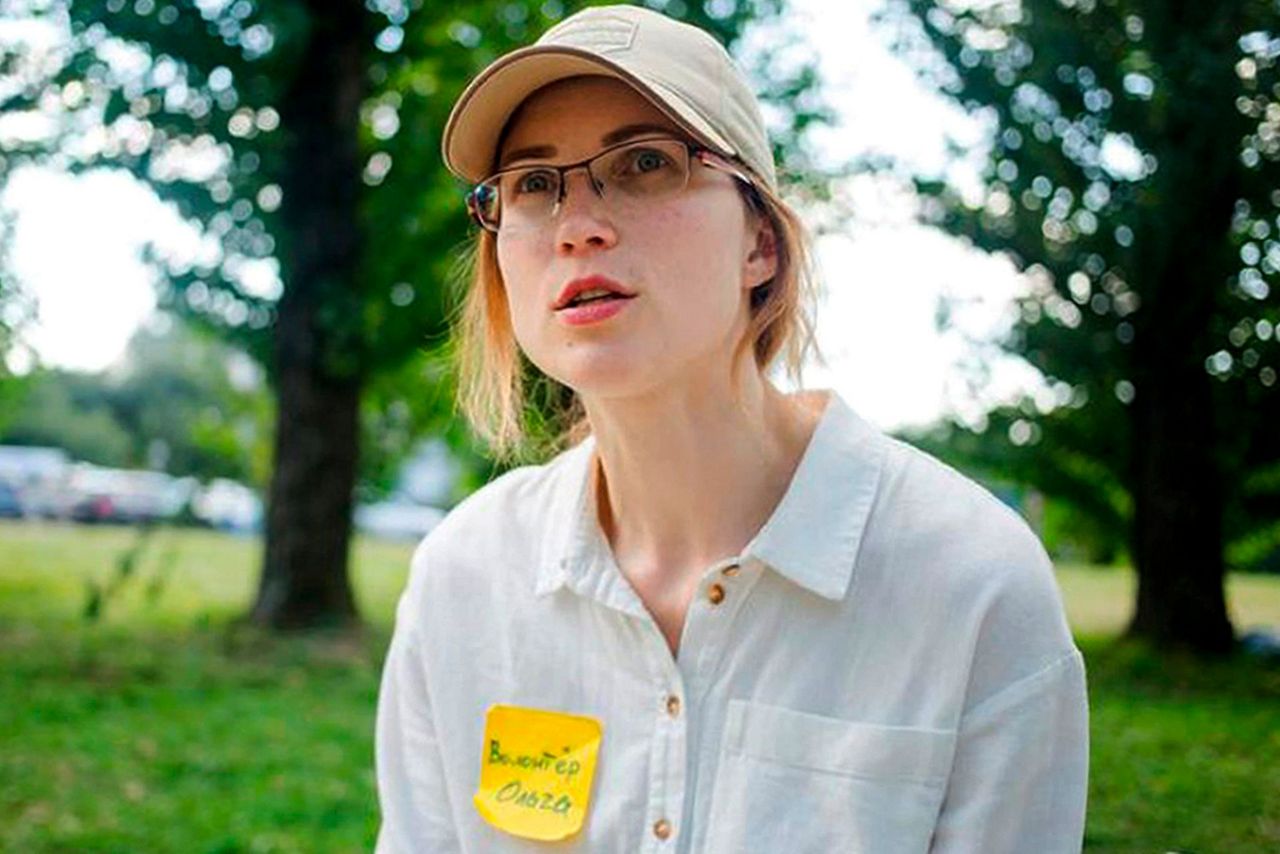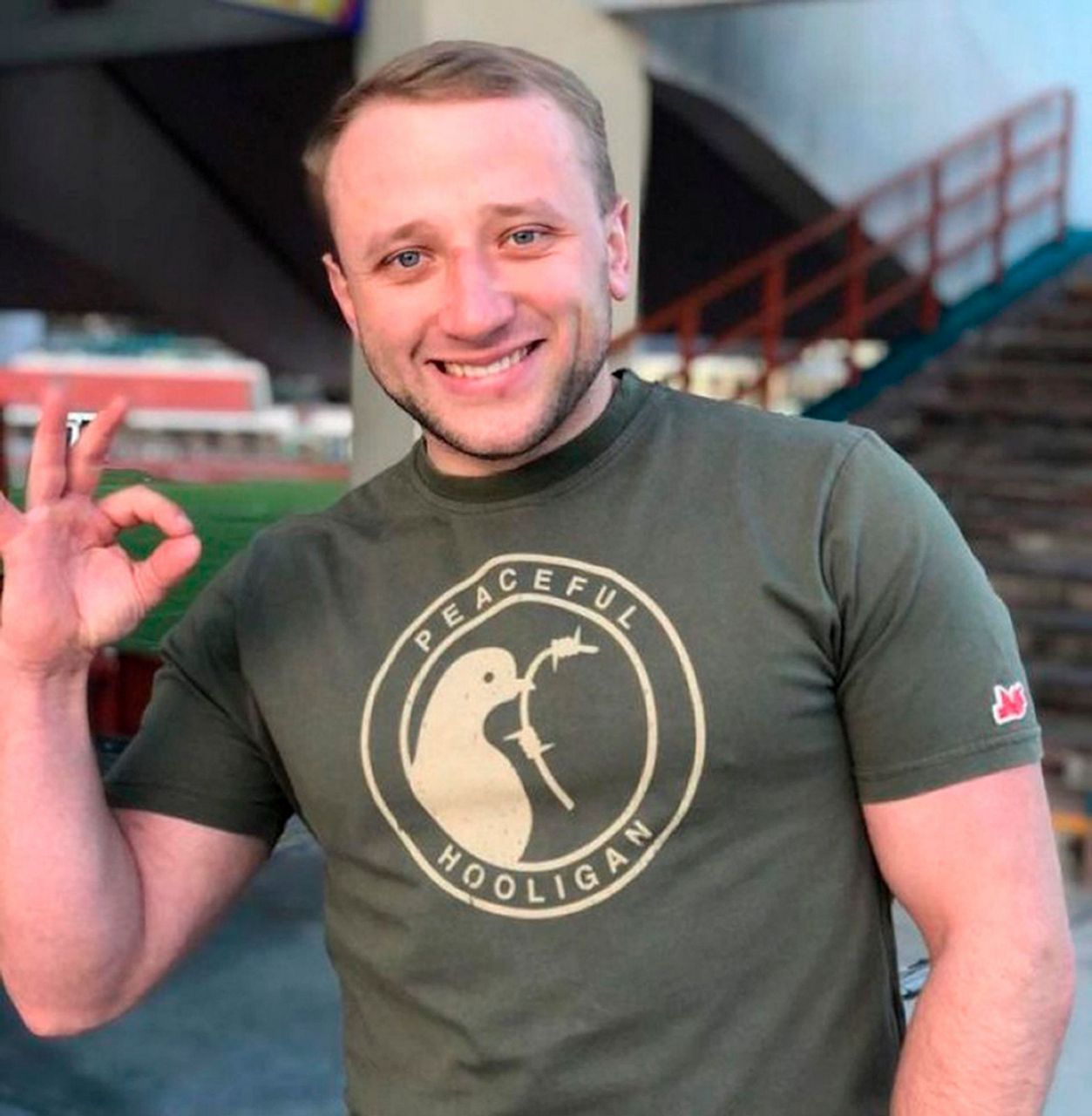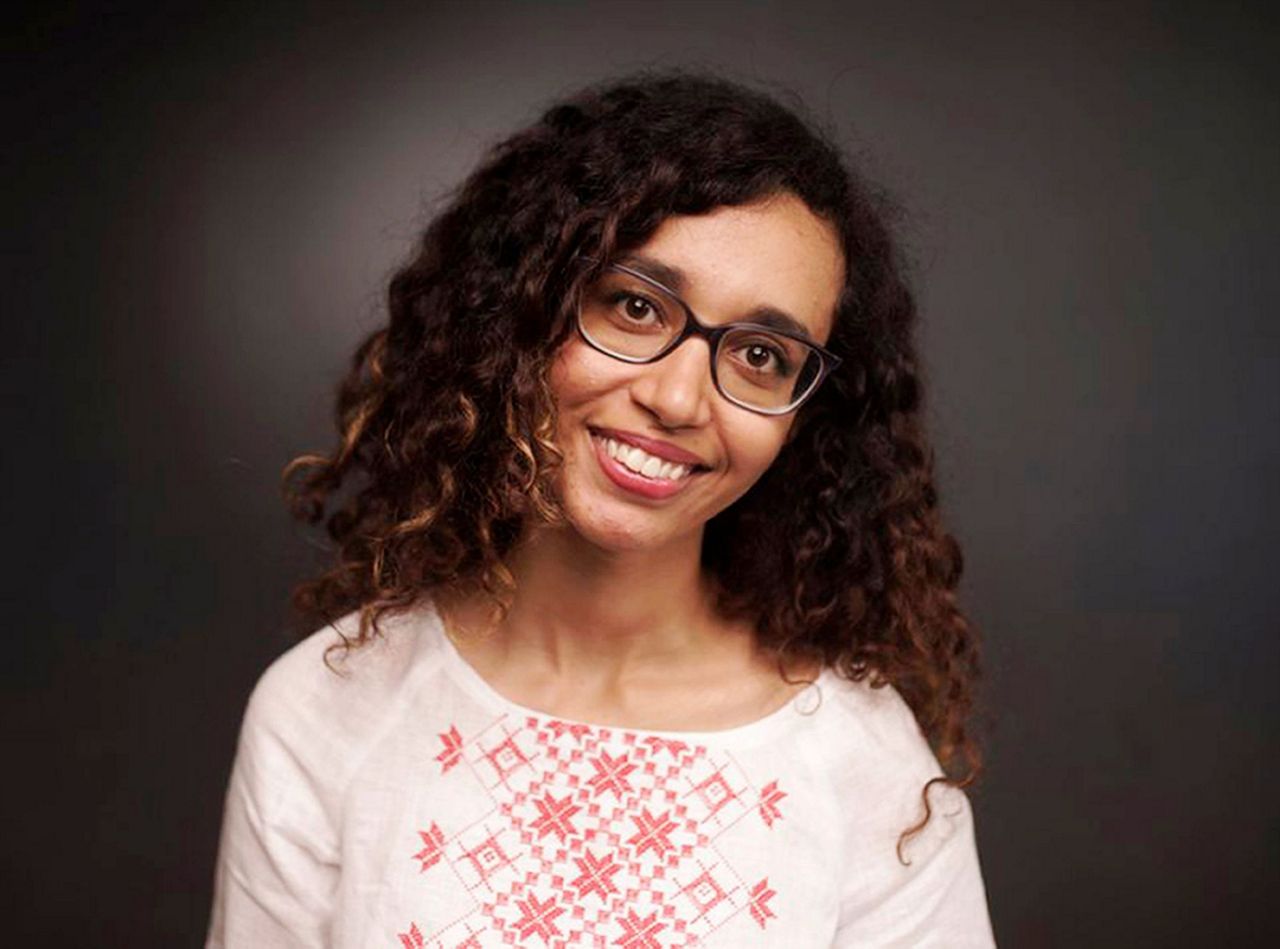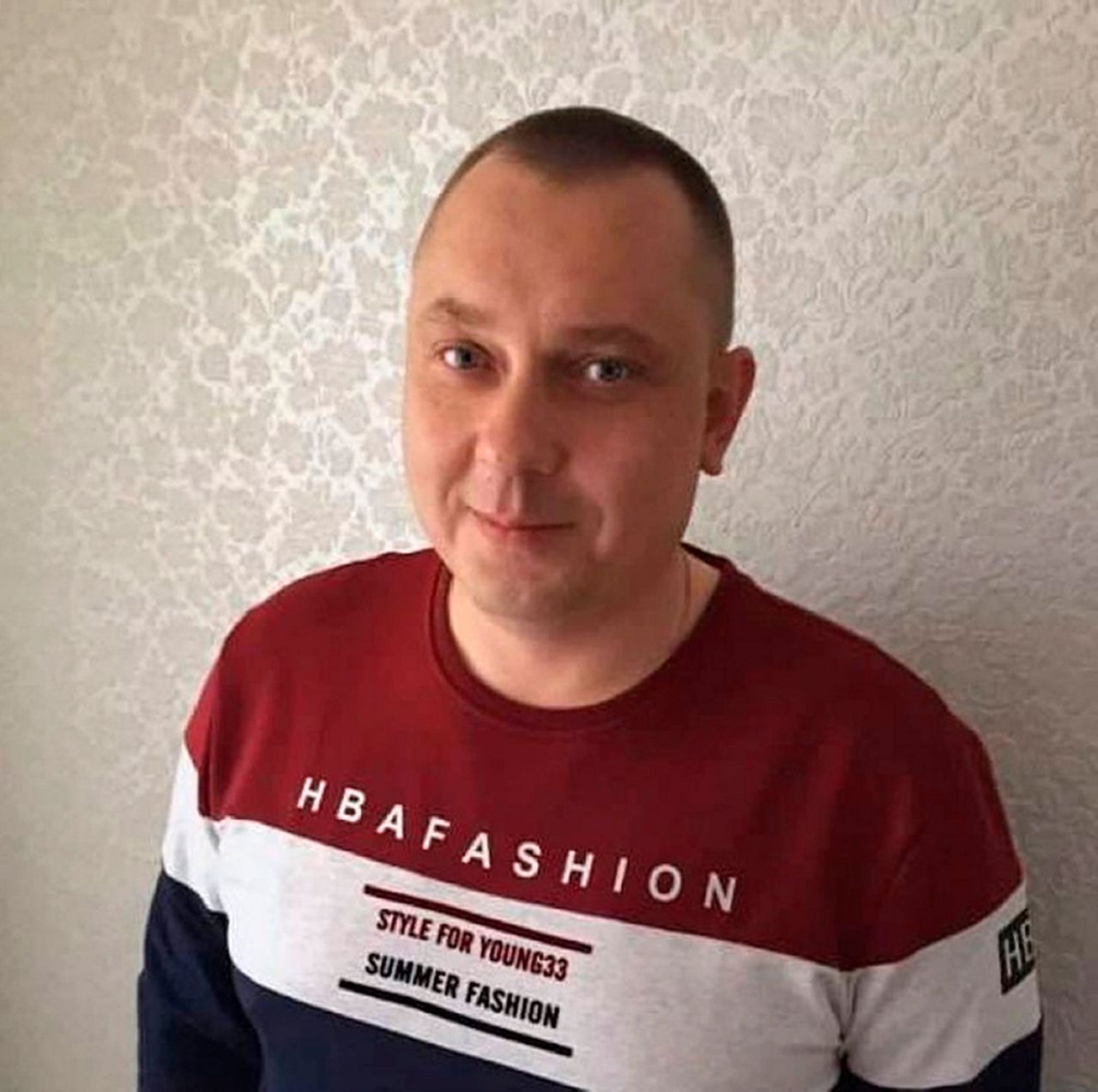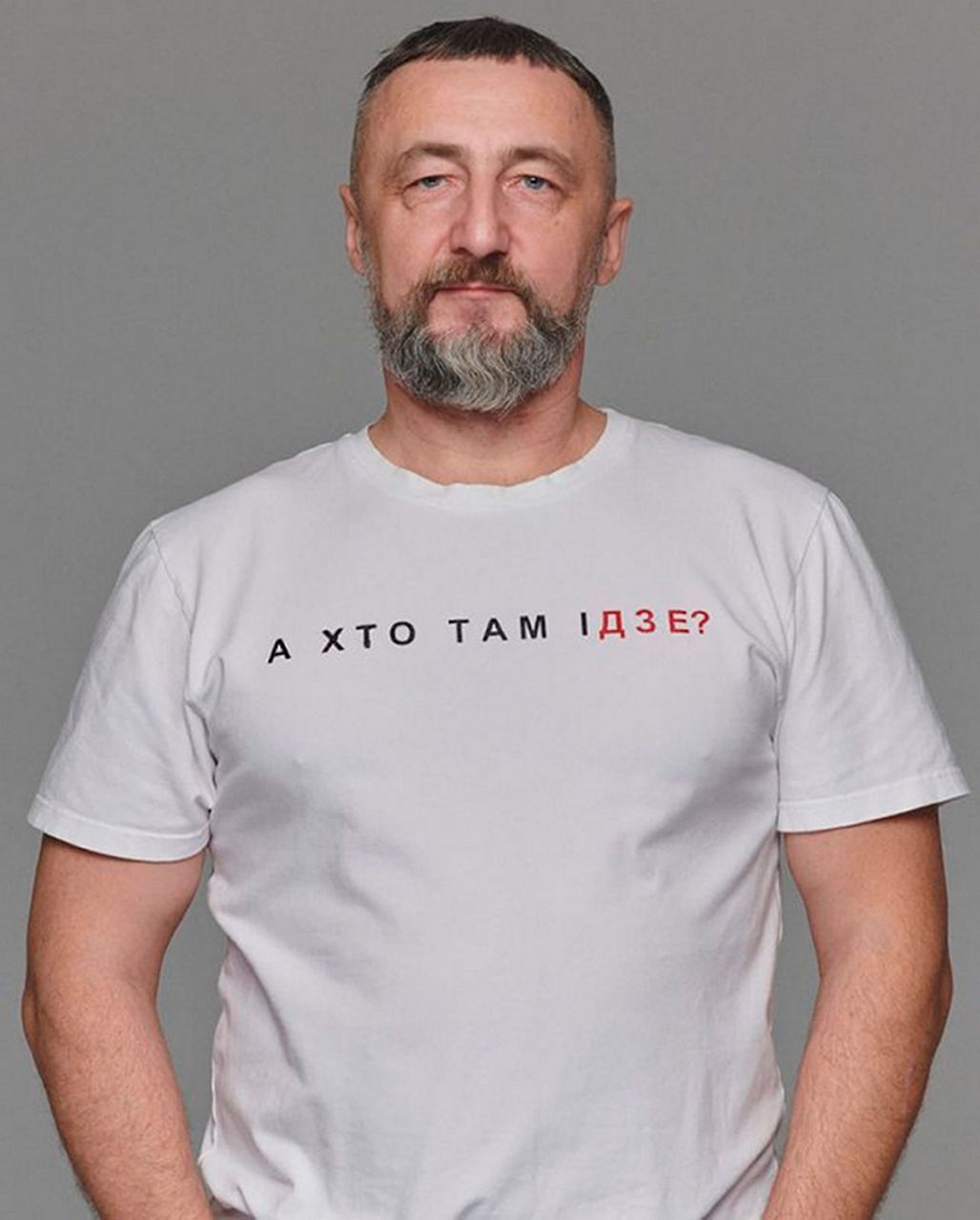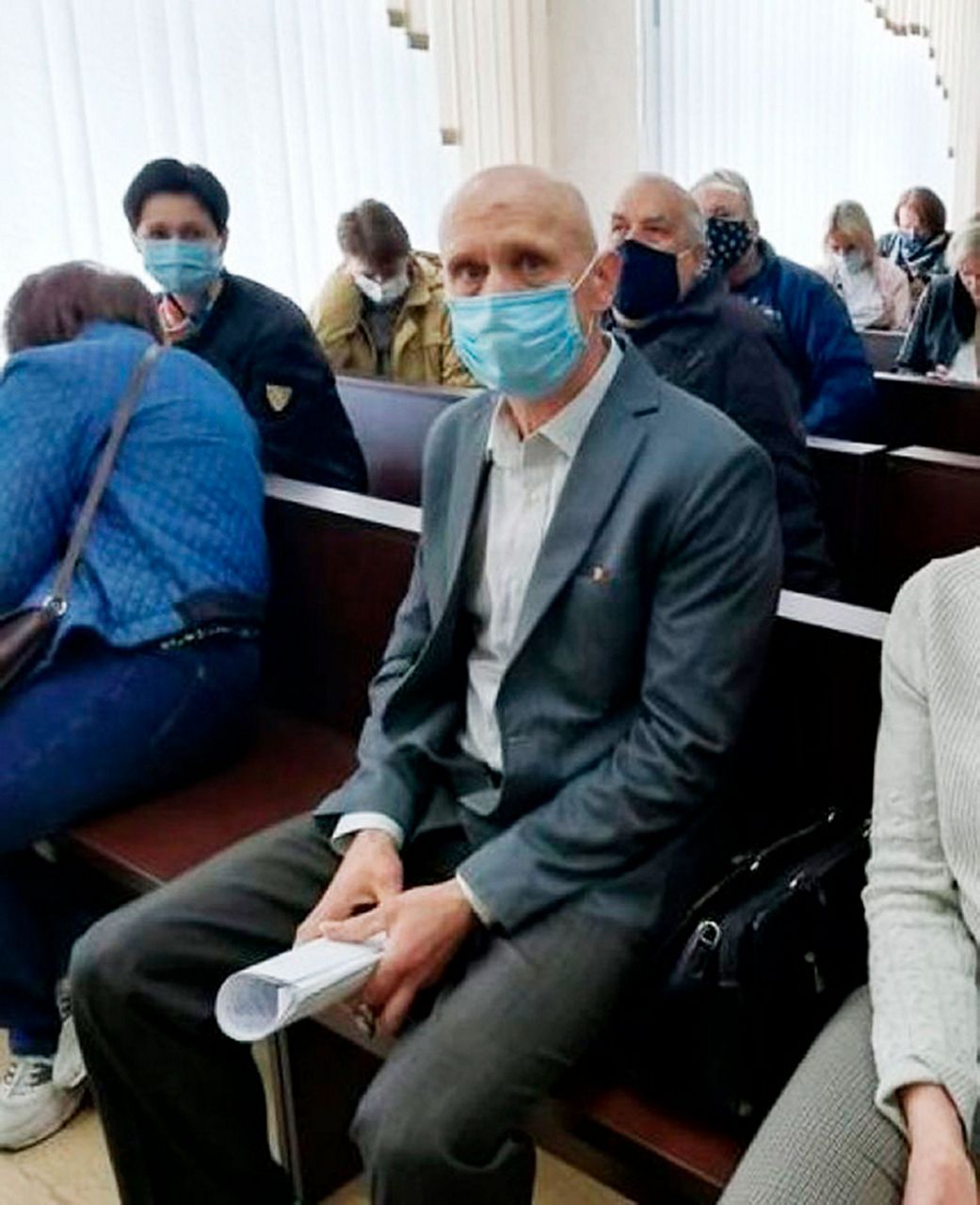KYIV, Ukraine (AP) — Human rights activists describe the political repression taking place in Belarus as its worst since Soviet dictator Josef Stalin’s purges during the 1930s.
Authorities have waged a multi-pronged crackdown on dissent in the year since President Alexander Lukashenko won a sixth term in an election that the opposition and the West saw as a sham. In response to mass protests, police arrested more than 35,000 people and beat thousands of demonstrators.
Belarusians from across society in the ex-Soviet nation that Lukashenko has ruled with an iron fist since 1994 have faced detention for voicing their discontent with the authoritarian leader's long rule. The 608 people that human rights groups name as political prisoners include students, doctors, journalists, industrial workers, retirees and others from all walks of life.
MIKITA ZALATAROU
The 17-year-old from the city of Gomel was sentenced in February to 4 1/2 years in a juvenile prison colony for taking part in protests.
Zalatarou and two of his friends were arrested a day after the presidential election on charges of throwing Molotov cocktails at police during a protest in the city. He denied the charges.
During the trial, Zalatarou, who has epilepsy, said he was denied medication and beaten in prison. The nation’s top state investigative agency, the Investigative Committee of Belarus, which has law enforcement authority for pre-trial criminal proceedings., rejected the demand by Zalatarou’s father for a probe into the beating.
“They are killing him by denying him medicines,” the father, Mikhail Lapunou, said. “They give them to him on one out of two days, and he needs them every morning and every evening. If he doesn’t receive them, his condition worsens, his brain cells die.”
VOLHA ZALATAR
The 38-year-old mother of five children between the ages of 4 and 17 has been in custody since March awaiting trial on charges of creating an “extremist organization.” She was arrested on the streets when she was taking her 10-year-old daughter to music school. She could face seven years in prison, if convicted.
After the August 2020 presidential election in Belarus, Zalatar moderated a local group on a messaging app in the town of Zhdanovichy and organized concerts, parties and walks. Investigators said the activities were “unsanctioned mass gatherings.”
Zalatar’s husband spent 10 days in jail for displaying the Belarusian opposition’s red and white flag in the window of their apartment.
“Despite the high walls and barred windows I feel free,” Zalatar wrote in a letter from prison. “I believe that everything will be fine with our family and with our country. I have got a unique experience and met some extraordinary people.”
YAUHEN HOVAR
The 42-year-old Hovar was sentenced in February to 2 1/2 years in prison for organizing a strike at the metal plant where he worked and a street protest in the eastern city of Zhlobin
A week after the election, he and other workers from the BMZ steel plant blocked a road to protest vote-rigging and violence against protesters.
Hovar helped stage an industrial action at the plant and was among the workers who called for a nationwide strike.
ANDREI LIUBETSKI
The 47-year-old plastic surgeon has been in custody since May on accusations of insulting the president.
Liubetski has worked in a children’s hospital in the capital, Minsk, for 18 years. If convicted, he could receive a five-year sentence.
During the mass demonstrations triggered by Lukashenko's reelection, Liubetski volunteered to provide medical attention for protesters who were beaten by police. He also criticized authorities on Facebook, calling for corruption, abuse of power and political repression to end.
“This government is already dead,” Liubetski he wrote on Facebook. “All those who were involved in falsifications, abuses and other crimes should better prepare their guilty plea.”
The doctor's wife fled Belarus with the couple's four children.
ALANA GEBREMARIAM
The 24-year-old student activist was sentenced to 2 1/2 years in prison last month for organizing a student strike.
Gebremariam, who led the Association of Belarusian Students, was arrested in October along with dozens of others following a wave of student strikes across the country. She was accused of “organizing actions that rudely violate public order.”
“A great force is hidden inside each of us, and it will eventually knock down all obstacles in the way of changes,” Gebremariam said in a Facebook post shortly before her arrest. “A desire for freedom and justice can’t be locked or taken away. That force is always inside us - in every word, every step and every thought.”
DZIANIS MARUSEVICH
The 26-year-old former member of Belarus’ national karate team is serving a four-year prison sentence for taking part in protests.
Marusevich was one of thousands of Belarusian athletes who supported the post-election protests. He was arrested in September and accused of throwing pieces of asphalt at police officers and kicking a police vehicle during a protest in Brest, a city on Belarus’ border with Poland.
“I couldn’t stand aside when I saw girls and elderly people kneeling before police and pleading not to beat them because they aren’t enemies,” Marusevich wrote in a letter to his mother.
His mother, Liudmila Marusevich, said she saw police in Brest use stun grenades to disperse demonstrators who came out to protest the disputed election results that showed Lukasenko with 80% of the vote.
MARYNA ZOLATAVA
The 43-year-old chief editor of Belarus' most popular media outlet, Tut.by, is one of 29 journalists currently serving prison sentences or in custody awaiting trial.
Before authorities shut down Tut.by and arrested Zolatava in May, she had turned the online portal into the most widely read news source in Belarus, reaching an estimated 62% of the country’s population.
Zolatava, a married mother of two teenagers who is widely recognized as one of the nation's most talented journalists, was arrested along with 14 other Tut.by journalists. They are accused of tax evasion and face up to 12 years in prison, if convicted.
“We were deeply impacted by what we learned about torture,” Zolatava said about police abuses of the protest detainees in an interview published shortly after last year's election. “Law enforcement officers were treating people in a cruel and humanless way. We saw violence causing shock and fear, but we also saw masses of people coming together and helping each other, and that gives energy.”
YUZEF NIAMERA
The 63-year-old retiree from the city of Grodno was sentenced to 1 1/2 years in prison after he stepped in to protect a woman from being beaten by police.
He took part in a September protest in the city near Poland's border which police dispersed with stun grenades and clubs. During the crackdown, he pushed police officers beating a woman with truncheons.
Niamera, who cared for his 91-year-old mother before his arrest and imprisonment, was convicted of “violence against police” and “rude violation of public order.”
Copyright 2021 The Associated Press. All rights reserved. This material may not be published, broadcast, rewritten or redistributed without permission.



